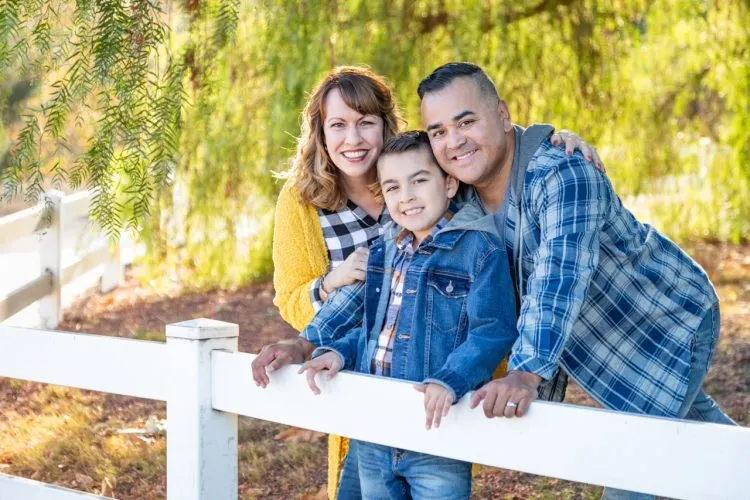What Is a Lifestyle Coach?
Feb 27, 2025
What Is a Lifestyle Coach?
In today’s fast-paced world, many people find themselves feeling stuck, overwhelmed, or unsure about how to create a life that truly reflects their desires and aspirations. The gap between where you are and where you want to be, can be daunting on your own. This is where a lifestyle coach comes in.
A lifestyle coach is a professional who helps individuals identify their goals, overcome obstacles, and create sustainable habits that lead to a more fulfilling and balanced life. Unlike therapists or business coaches, lifestyle coaches focus on holistic well-being, addressing personal growth, mindset, health, relationships, career, and overall life satisfaction.
The International Coaching Federation (ICF) describes coaching as “a partnership that inspires clients to maximize their potential through thought-provoking and creative processes.” A coach plays a unique role in supporting your success.

Understanding the Role of a Lifestyle Coach
A lifestyle coach serves as a guide, mentor, and accountability partner for individuals looking to
improve their quality of life. Their primary goal is to help clients achieve personal fulfillment by making intentional choices that align with their values, passions, and aspirations.
Lifestyle coaches use a combination of techniques, including:
- Goal Setting – Helping clients define clear, achievable goals that align with their vision.
- Mindset Shifts – Encouraging positive thinking and eliminating self-limiting beliefs.
- Habit Formation – Creating sustainable daily routines that support long-term success.
- Work-Life Balance – Assisting in finding harmony between career and personal life.
- Stress Management – Teaching techniques to reduce anxiety and improve emotional
well-being. - Health and Wellness – Encouraging healthy lifestyle choices, including nutrition,
exercise, and self-care. - Relationship Coaching – Helping clients improve personal and professional
relationships.

Emma found Balance and Purpose
Emma, a corporate executive, was constantly stressed and felt disconnected from her personal life. She sought the help of a lifestyle coach, who helped her redefine her priorities, set clear boundaries at work, and establish a morning routine focused on mindfulness and exercise. Within six months, Emma felt more in control of her schedule, improved her relationships, and regained a sense of purpose.
The Difference Between a Lifestyle Coach and Other Coaching Professions
There are many types of coaches, and it’s important to distinguish a lifestyle coach from other
coaching professions.
- Health Coach – A health coach primarily focuses on physical health, nutrition, and
fitness, whereas a lifestyle coach takes a more holistic approach, incorporating emotional, mental, and professional well-being. - Business or Career Coach – These coaches focus on professional growth, leadership,
and career transitions, while a lifestyle coach considers career development as one piece of a balanced life. - Relationship Coach – While similar, a relationship coach focuses broadly on overall relationship development, whereas a lifestyle coach also works on your relationship with yourself, goals, routines, and daily choices that lead to a fulfilling lifestyle.
- Therapist or Counselor – A therapist helps clients work through past traumas, mental health issues, and emotional wounds, while a lifestyle coach focuses on creating actionable strategies for future success.

How a Lifestyle Coach Helps Transform Lives
Lifestyle coaching is a transformational process that empowers clients to take control of their
lives. Here’s how a lifestyle coach can make a difference:
1. Clarity and Vision Development
Many people struggle with direction and purpose. A lifestyle coach helps clients gain clarity about what they truly want and develop a roadmap to achieve it. They will start with understanding where you are now, and where you want to be. They will walk beside you every step of the way with encouragement and support as you achieve your goals.
Making A Career Pivot
James had spent ten years in finance but felt unfulfilled. His lifestyle coach guided him through a self-discovery process, helping him realize his passion for writing. With their support, James transitioned into a successful career as a freelance writer, finding joy and fulfillment in his work. The work week became fulfilling, not draining, and it gave new life to his career.
2. Overcoming Limiting Beliefs
Self-doubt and negative beliefs can prevent people from reaching their potential. Lifestyle
coaches help clients identify and reframe these beliefs, fostering confidence and motivation.
Many times, what feels true in our lives, is not actually the truth. Our false perceptions are much
like looking in funny mirrors at an amusement park. Things are distorted and not quite reality. A
life coach can help you discern truth and uproot limiting beliefs that are holding you back.
Conquering Self-Doubt: Step One
Maria, an aspiring entrepreneur, hesitated to launch her business due to fear of failure. Her lifestyle coach helped her replace negative self-talk with affirmations and guided her through small, confidence-building steps. Today, she runs a thriving handmade jewelry business.
3. Creating Positive Habits
Small, consistent actions lead to lasting change. A lifestyle coach helps clients develop routines that support their goals, such as morning rituals, mindfulness practices, or exercise regimens. Having accountability can be just the motivation to overcome procrastination, find courage to change habits, and celebrate wins along the way. James Clear, author of Atomic Habits said, “It’s hard to change your habits if you never change the underlying beliefs that led to your past behavior. You have a new goal and a new plan, but you haven’t changed who you are.” Coaching can help you shift those underlying beliefs so you can change habits.
Building a Healthy Routine One Choice at a Time
Daniel wanted to adopt a healthier lifestyle but struggled with consistency. He had an underlying belief that he would never be successful. His coach helped him break down that barrier and break his goals into manageable steps, incorporating daily walks, meal prepping, and journaling. Over time, Daniel lost weight, gained energy, and developed sustainable habits.
4. Improving Relationships
Healthy relationships are essential for overall well-being. Lifestyle coaches provide guidance on effective communication, boundary-setting, and emotional intelligence to improve personal and professional relationships. Often in relationships we have a blind spot that we can’t see. A coach can reflect that blind spot and help you uncover new possibilities.
Strengthening a Marriage with Listening
Sophie and Mark were struggling with communication in their marriage. Their lifestyle coach introduced them to active listening exercises and weekly check-ins. Their relationship transformed as they learned to express their needs and appreciate each other’s perspectives.
5. Enhancing Physical and Mental Well-Being
A balanced lifestyle includes physical health, mental clarity, and emotional resilience. Lifestyle
coaches help clients create wellness routines, manage stress, and cultivate self-care habits.
Real-Life Story: Managing Anxiety Through Coaching
Chris, a high-achieving professional, experienced frequent anxiety attacks. His lifestyle coach introduced him to breathwork techniques, journaling, and time management strategies. Over time, he learned to manage stress and enjoy life more fully.
6. Accountability and Support
One of the most valuable aspects of working with a lifestyle coach is having someone to hold you accountable. Coaches provide encouragement, constructive feedback, and support to keep clients on track. The American Society of Training and Development found that the likelihood of a person meeting their goal after committing to another person is 65%. Their chance of success increases to 95% when they build in ongoing meetings with their partners to check in on their progress.
Motivation for the Win!
Lena struggled with procrastination in pursuing her personal development goals. With regular check-ins from her coach, she stayed committed, completed a passion project, and gained the confidence to pursue new opportunities.
Who Can Benefit from a Lifestyle Coach?
Lifestyle coaching is beneficial for anyone looking to improve their quality of life. Some common reasons people seek out a lifestyle coach include:
- Feeling stuck or unmotivated
- Struggling with work-life balance
- Experiencing burnout or stress
- Wanting to create healthier habits
- Seeking personal growth and self-improvement
- Navigating life transitions (new job, relationships, relocation, etc.)
- Desiring more confidence and self-awareness

How to Choose the Right Lifestyle Coach
Finding the right lifestyle coach is crucial for success. Here are some tips for choosing the best
fit:
1. Identify Your Goals
Before hiring a coach, clarify what you want to achieve. Are you looking to improve your health, relationships, career, or overall well-being?
2. Check Credentials and Experience
While formal certifications are not always required, many reputable lifestyle coaches have training accredited through the International Coaching Federation. The credentials of ACC (Associate Certified Coach), or PCC (Professional Certified Coach) come through ICF.
3. Look for Testimonials and Reviews
Reading client testimonials and reviews can provide insights into the coach’s effectiveness and
approach. For example, coaches here are trained as heart-centered Lifestyle Coaches and their training is aligned with the International Coaching Federation.
4. Assess Compatibility
Coaching is a personal process, so it’s important to find a coach whose style, values, and personality align with yours. When looking for a life coach, a client should seek someone with strong listening skills, a non-judgmental attitude, the ability to ask insightful questions to help clients identify their own solutions, a focus on goal setting, accountability, empathy, and a clear understanding of the client’s needs and area of focus. Ideally the coach would have relevant training and certification from a reputable organization.
5. Schedule a Consultation
Many lifestyle coaches offer free discovery calls to determine if they are the right fit. Use this opportunity to ask questions and discuss your goals.
Final Thoughts
A lifestyle coach is much more than a mentor or advisor—they are a catalyst for positive change.
Whether you’re looking to develop better habits, improve your relationships, or create a life that truly aligns with your values, a lifestyle coach can help you achieve your aspirations. By
providing clarity, support, and accountability, they empower individuals to take intentional steps toward a more fulfilling and balanced life.
If you’re ready to transform your life, investing in a lifestyle coach could be the first step toward
unlocking your full potential.
Stay connected with news and updates!
Join our mailing list to receive the latest news and updates from our team.
Don't worry, your information will not be shared.
Categories
All Categories

